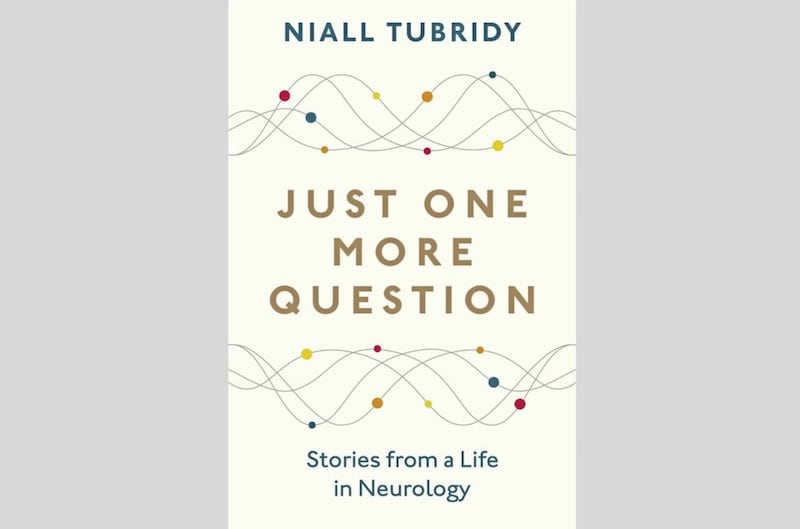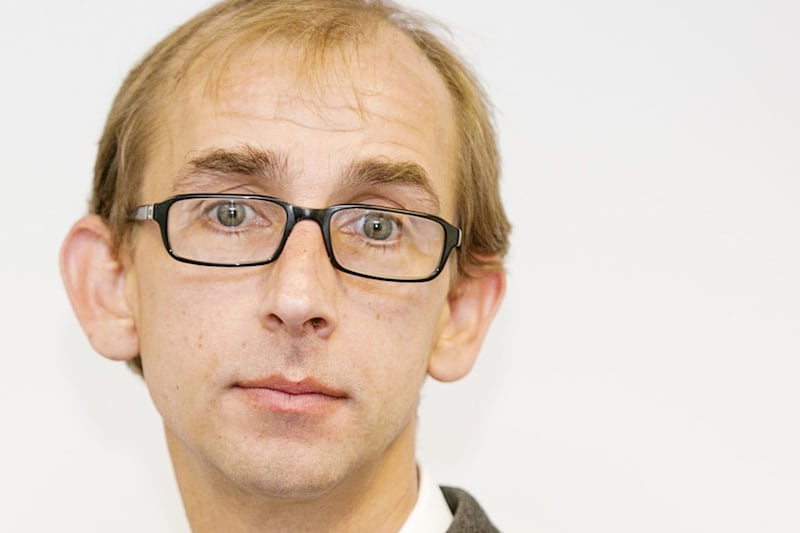'CATHY went to the All-Ireland football final in Croke Park. Having driven up with her parents from Kerry, the excitement for the 26-year-old was enormous. It was only 10 minutes into the game when the Kerry fans rose as one to acclaim a spectacular point, and Cathy suddenly forgot everything. She did not know who she was. She did not have a clue where she was or why she was among thousands of faces looking down on a distant field.'
This extract from Professor Niall Tubridy’s book, Just One More Question: Stories from a Life in Neurology, highlights the fragility and complexity of our brain and nervous system.
"The exact cause of such bouts of temporary amnesia remains unknown. The unfortunate individual loses their short-term memory and the ability to lay down your memories for up to 24 hours. It can be provoked by immersion in water, hot or cold, or extremes of exertion and excitement," explains Prof Tubridy, a consultant neurologist at St Vincent’s University Hospital, Dublin, and professor of clinical medicine at University College Dublin.
"If I’m honest those transient global amnesia cases sealed the deal on me wanting to do neurology. To meet people who had just gone from the land of the neurologically well to the neurologically unwell is an endless source of fascination," adds Prof Tubridy, who fell in love with the detective work of neurology as a medical student.
In Just One More Question he shares the stories of encounters that are poignant, dramatic and funny, such as the old man who sees Santa Claus in a helicopter in his bedroom and a man suffering from Ophelia syndrome who had temporarily descended into a Shakespearean form of madness.
Using simple and illuminating language, Prof Tubridy also explains well-known conditions like multiple sclerosis (MS), motor neurone disease and Parkinson's and and brings us into the examining room as he accompanies patients with these diagnoses on their challenging path.
While patients, when given a life-changing diagnosis, have a plethora of questions for Prof Tubridy, he admits the most common thing he is asked is: "Any chance of tickets for the show?"
The show in question is RTE’s The Late Late Show, hosted by his younger brother Ryan Tubridy. "I’m asked that about once every hour," he laughs, adamant he didn’t write his book seeking fame and fortune.
"I’m as comfortable doing all this promotional stuff as Ryan would be in the neurologically clinic. This is really out of my comfort zone. I’m on radio next week – I’ve never been on radio before and don’t really want to be."

Surprisingly, the one person he refuses to allow to interview him about his book and career is Ryan.
“I've got two brothers and two sisters and we're all very close and meet regularly and slag each other off about what we do," he says.
"Ryan's and my jobs are actually quite similar as we are both interviewing people to try and get as much information as possible, and in my case get closer to the truth to be able to give a diagnosis. But there will be no interview – that would be too weird."
Prof Tubridy’s medical genes come from his paternal side. His father Patrick, who died in January 2013 was a psychiatrist and his grandfather Sean Tubridy, was a doctor, as well as a Fianna Fáil TD.
After training at the Royal College of Surgeons in Dublin, Prof Tubridy worked in hospitals in London, Paris and Melbourne, before returning to Ireland. His specialisation within neurology is the treatment of and research into MS but he also deals with patients who have other neurological illnesses, like Parkinson's disease and motor neurone disease.
"Neurology, in general, does provoke a lot of existential worries and crises for people beyond a weak limb or arm. It puts you in touch with your morality fairly sharply and makes you value life more," he admits.
While advancement in treatment and technological inventions such as MRI scanners have greatly assisted neurologists, there are still some patients who can’t be helped, most notably those with Alzheimer's and motor neurone disease.
"These conditions are my two worst fears personally," Prof Tubridy confesses. "I do believe we will find a definitive test for Alzheimer’s but my greatest wish is that in the future we would be able to alleviate the signs and symptoms of Alzheimer's."
Prof Tubridy has sympathy for those who seek unregulated alternative therapies, saying: “I don’t know what I’m going to be like when it’s my turn.”
However, he does warn people to be cautious: "With the advent of Dr Google, a lot of our job now is to – weirdly – interpret people from their own interpretations of information they have seen online. If you have got a headache, for example, and you go and Google it, you will convince yourself you have a brain tumour and then your symptoms can be exacerbated subliminally through worry."
For those with a diagnosis such as MS, he encourages them to not be defined by their condition.
"I want people to live in parallel with these labels. Even when they are physically well, I see these patients internally being controlled by their label. They struggle and so do their family, affecting their overall sleep and health."
Many people perceive that stress is a cause of neurological conditions, but Tubridy says "evidence of that is slight"; rather, stress can lead to lack of sleep, increase headaches and lower our immune system, thus heightening symptoms.
His advice on promoting brain health and preventing memory loss is rather simple.
"I tell people not to go and join gyms, but simply go for walks, meet friends and join in conversation that stimulates them and makes them laugh.
"I also strongly advise reading books – but not in isolation. Talk to others about what you are reading, or join in a dance or music class. Most importantly, do not isolate yourself."
:: Just One More Question: Stories From A Life In Neurology is published by Penguin and is out now.



